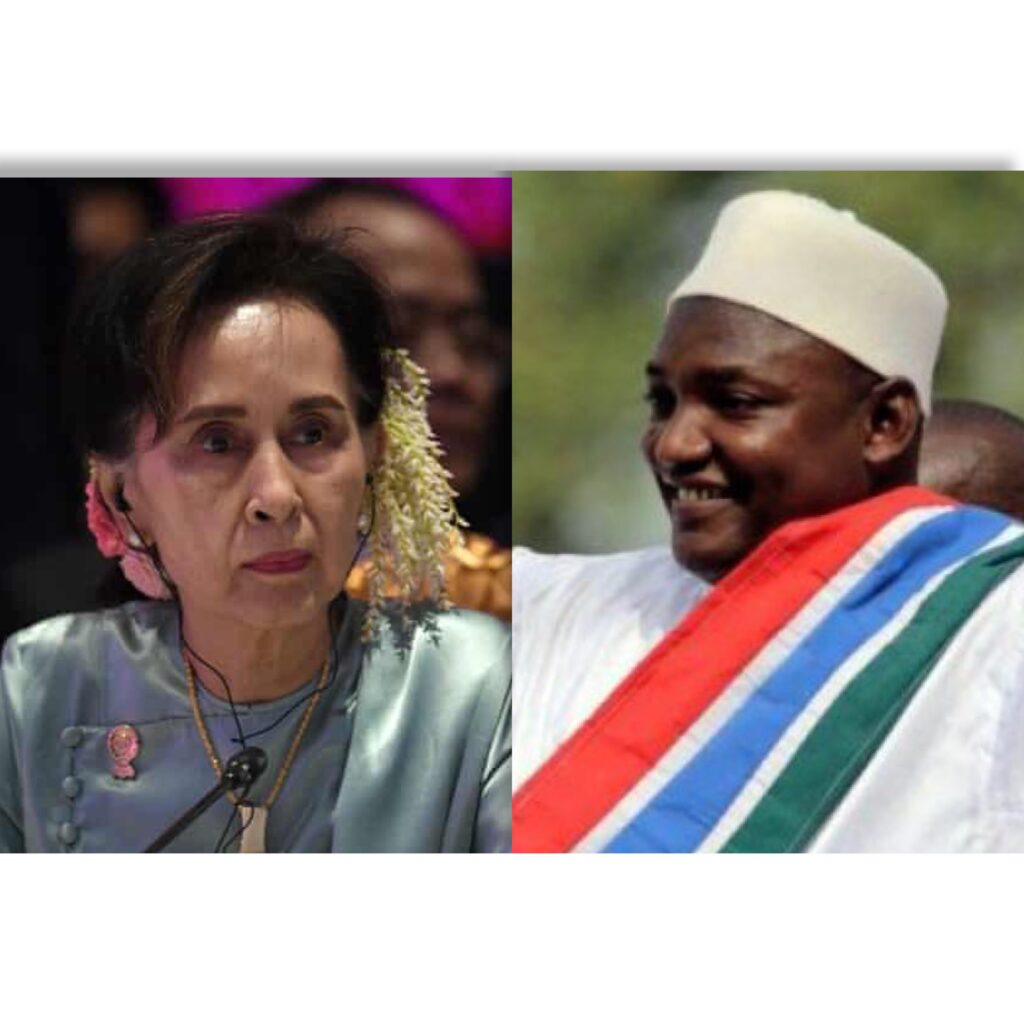
De facto leader Aung San Suu Kyi will defend Myanmar against allegations of genocide at The Hague next month, her office has announced.
Ms San Suu Kyi, once an icon of democracy but now tainted by her association with the Rohingya genocide, will lead a delegation to the International Court of Justice (ICJ).
She has repeatedly refused to condemn the alleged genocide as well as the actions of the Burmese military, claiming there is not enough evidence to definitively say what has been happening in Rakhine and blaming “terrorists” for an “iceberg of misinformation” about the situation.
The genocide case against Myanmar was brought by the Gambia government under the rules of the ICJ alleging breaches of the 1948 convention on the prevention and punishment of the crime of genocide.
The Gambia is calling for punishment for those responsible, compensation for the Rohingya victims and an immediate end to attacks.
The 600,000 Rohingya who remain in Myanmar are said to be in “real and significant danger” of further genocidal acts, The Gambia application says.
Myanmar military spokesman Brigadier General Zaw Min Tun told Reuters the decision to send Aung San Suu Kyi was made after the army consulted with the government. “We, the military, will fully cooperate with the government and we will follow the instruction of the government,” he said.
A spokesman for Aung San Suu Kyi’s party, the National League for Democracy, said she had decided to take on the case herself.
“They accused Aung San Suu Kyi of failing to speak out about human rights violations,” spokesman Myo Nyunt said. “She decided to face the lawsuit by herself.”
If the ICJ takes up the case, it will be the first time the court in The Hague has investigated genocide claims on its own without relying on the findings of other tribunals such as the international criminal tribunal for the former Yugoslavia, which it consulted for claims against Serbia and Croatia.
Separately, the International Criminal Court (ICC) last week authorised a full investigation into crimes committed against the Rohingya. Like the ICJ, the criminal court cannot enforce arrest warrants or judgments but can ask member states to detain the individuals it accuses.










Recent Comments